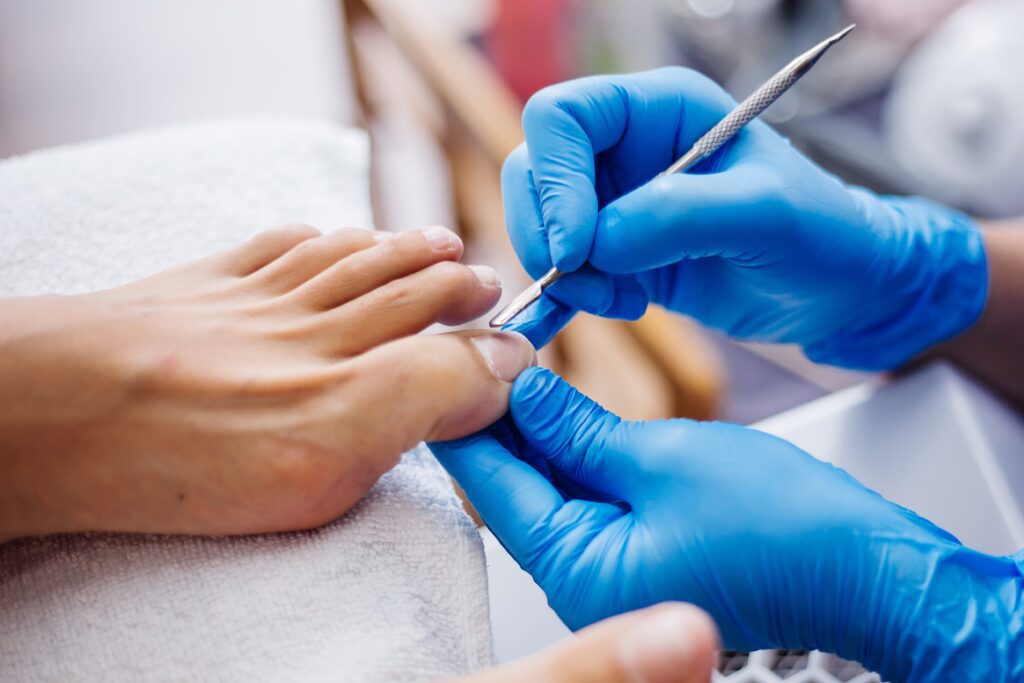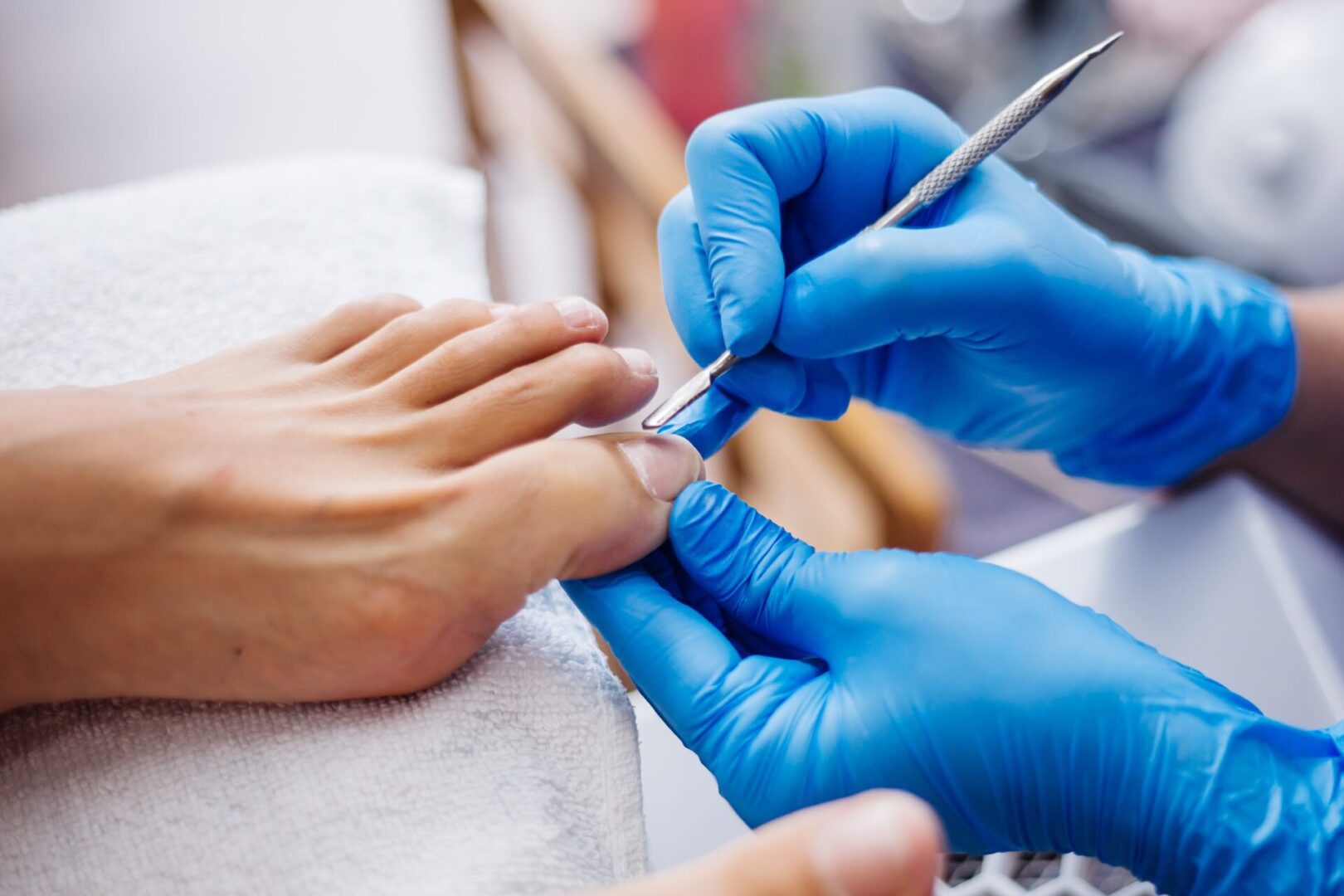Importance of foot care for diabetics
Diabetes is a chronic condition that affects millions of people worldwide, and one of the most significant yet often overlooked aspects of diabetes management is foot care. The importance of foot care for diabetics cannot be overstated, as it plays a crucial role in preventing serious complications, including infections, ulcers, and even amputations. In this comprehensive guide, we will explore the importance of foot care for diabetics, offering practical tips and insights from a chiropodist to help you maintain healthy feet and prevent complications.

Understanding the Importance of Foot Care for Diabetics
The importance of foot care for diabetics stems from the fact that diabetes can lead to a range of foot problems due to poor blood circulation and nerve damage. High blood sugar levels over time can cause peripheral neuropathy, a condition that damages the nerves in your feet, making it difficult to feel pain, heat, or cold. This lack of sensation can result in unnoticed injuries that, if left untreated, can become infected.
Additionally, diabetes can cause poor circulation, which means that even minor injuries may heal slowly, increasing the risk of infection. For diabetics, a small cut or blister can quickly develop into a serious problem. This is why the importance of foot care for diabetics is so critical. By taking proactive steps to care for your feet, you can prevent these complications and maintain your overall health.
Top Foot Care Tips for Diabetics
To highlight the importance of foot care for diabetics, here are some essential tips from a chiropodist that can help you keep your feet healthy and avoid complications.
1. Inspect Your Feet Daily
One of the most important aspects of foot care for diabetics is daily inspection. Since diabetes can reduce sensation in your feet, it’s crucial to check them every day for any signs of injury, such as cuts, blisters, redness, swelling, or nail issues. Use a mirror to inspect the bottoms of your feet or ask a family member for help if you have difficulty seeing them.
2. Keep Your Feet Clean and Dry
Maintaining proper hygiene is essential for diabetics, as it helps prevent infections. Wash your feet daily with lukewarm water and mild soap. Be sure to dry your feet thoroughly, especially between the toes, to prevent fungal infections. The importance of foot care for diabetics is evident in this daily routine, as it helps keep your feet free from bacteria and other harmful agents.
3. Moisturize Your Feet, But Avoid Between the Toes
Dry skin can crack and lead to infections, so it’s important to moisturize your feet daily. Use a good-quality foot cream to keep your skin soft and supple, but avoid applying moisturizer between your toes. Excess moisture in this area can promote fungal growth, leading to infections that can be particularly problematic for diabetics.
4. Trim Your Nails Carefully
Proper nail care is another key aspect of foot care for diabetics. Trim your toenails straight across to avoid ingrown nails, which can lead to infections. Use a nail file to smooth any sharp edges. If you have difficulty trimming your nails, consider seeing a chiropodist or foot specialist who can assist you.
5. Wear Proper Footwear
The importance of foot care for diabetics also extends to the type of footwear you choose. Wearing well-fitting shoes that provide ample support and cushioning can prevent injuries and reduce the risk of developing foot ulcers. Avoid walking barefoot, even at home, as this increases the risk of injury. Make sure your shoes have plenty of room for your toes and are made of breathable materials to keep your feet dry.
6. Protect Your Feet from Extreme Temperatures
Diabetics should be cautious about exposing their feet to extreme temperatures. Since diabetes can reduce your ability to sense temperature changes, you may not realize when your feet are too hot or cold. Wear warm socks in cold weather and avoid placing your feet near heaters or fireplaces. During the summer, protect your feet from hot pavement and sand by wearing shoes or sandals.
7. Keep Your Blood Sugar Levels Under Control
Managing your blood sugar levels is not just important for your overall health but also for your foot health. High blood sugar levels can damage nerves and blood vessels in your feet, leading to complications. By keeping your blood sugar levels within the target range, you can reduce the risk of foot problems and improve circulation.
8. Don’t Ignore Foot Pain
Foot pain is often the first sign of a problem, and it should never be ignored. If you experience any pain, swelling, or changes in your feet, it’s important to seek medical attention immediately. Early intervention can prevent minor issues from becoming serious complications.
Understanding the Role of a Chiropodist in Diabetic Foot Care
A chiropodist, also known as a podiatrist, is a healthcare professional who specializes in the treatment of foot and lower limb conditions. For diabetics, regular visits to a chiropodist are crucial for maintaining foot health. A chiropodist can help you with nail care, assess your risk of foot complications, and provide advice on proper footwear.
Can a Chiropodist Remove Corns?
One common question among diabetics is, “Can a chiropodist remove corns?” The answer is yes. Corns are thickened areas of skin that develop due to pressure or friction, and they can be particularly problematic for diabetics. A chiropodist can safely remove corns and provide advice on how to prevent them from recurring. This is another reason why the importance of foot care for diabetics cannot be underestimated.
When to See a Foot Specialist
If you’re wondering, “What does a foot specialist do?” the answer is that they play a vital role in preventing and treating foot complications in diabetics. A foot specialist can assess your foot health, treat any existing conditions, and provide guidance on how to care for your feet. It’s important to see a foot specialist regularly, especially if you have any signs of foot problems or if you’re unable to care for your feet properly.
The Impact of Poor Foot Care on Diabetics
Neglecting foot care can have serious consequences for diabetics. The most severe complications include foot ulcers and infections, which can lead to amputation if not treated promptly. In fact, diabetes is one of the leading causes of lower limb amputations worldwide. The importance of foot care for diabetics lies in its ability to prevent these devastating outcomes.
Foot ulcers are one of the most common complications in diabetics, often resulting from minor injuries that go unnoticed due to nerve damage. Without proper care, these ulcers can become infected, leading to severe tissue damage. The importance of foot care for diabetics becomes evident in the prevention of such ulcers and the avoidance of potential amputations.
Preventing Foot Complications: A Lifelong Commitment
The importance of foot care for diabetics is not just about following a few tips; it’s about making foot care a lifelong commitment. Diabetes is a chronic condition, and maintaining foot health requires ongoing attention and care. By integrating foot care into your daily routine, you can significantly reduce the risk of complications and maintain your quality of life.
Regular Check-Ups with Your Healthcare Team
Regular check-ups with your healthcare team, including your chiropodist and primary care physician, are essential for preventing and managing foot complications. During these visits, your healthcare providers can assess your foot health, monitor any changes, and provide advice on how to care for your feet. These check-ups are a critical component of diabetic foot care and should not be overlooked.
Conclusion: The Vital Importance of Foot Care for Diabetics
In conclusion, the importance of foot care for diabetics cannot be overstated. Proper foot care is essential for preventing serious complications such as ulcers, infections, and amputations. By following the tips outlined in this guide and working closely with your healthcare team, you can maintain healthy feet and reduce the risk of complications.
Remember that the importance of foot care for diabetics is a lifelong commitment. Daily foot inspections, proper hygiene, appropriate footwear, and regular visits to a chiropodist are all crucial elements of diabetic foot care. By taking these steps, you can protect your feet and enjoy a better quality of life.
About Author
Hi, I’m Arezou Hassani, a Chiropodist practicing in Ontario, Canada. I hold a Bachelor of Science in Psychology and an Advanced Diploma in Chiropody. As a member of the College of Chiropodists of Ontario and other professional organizations, I have extensive experience treating foot issues for patients of all ages. I founded Footwyse to bridge innovative research with practical foot care solutions, offering virtual consultations and curated products. I’m passionate about helping people achieve optimal foot health and invite you to join me in this journey toward healthier feet.

